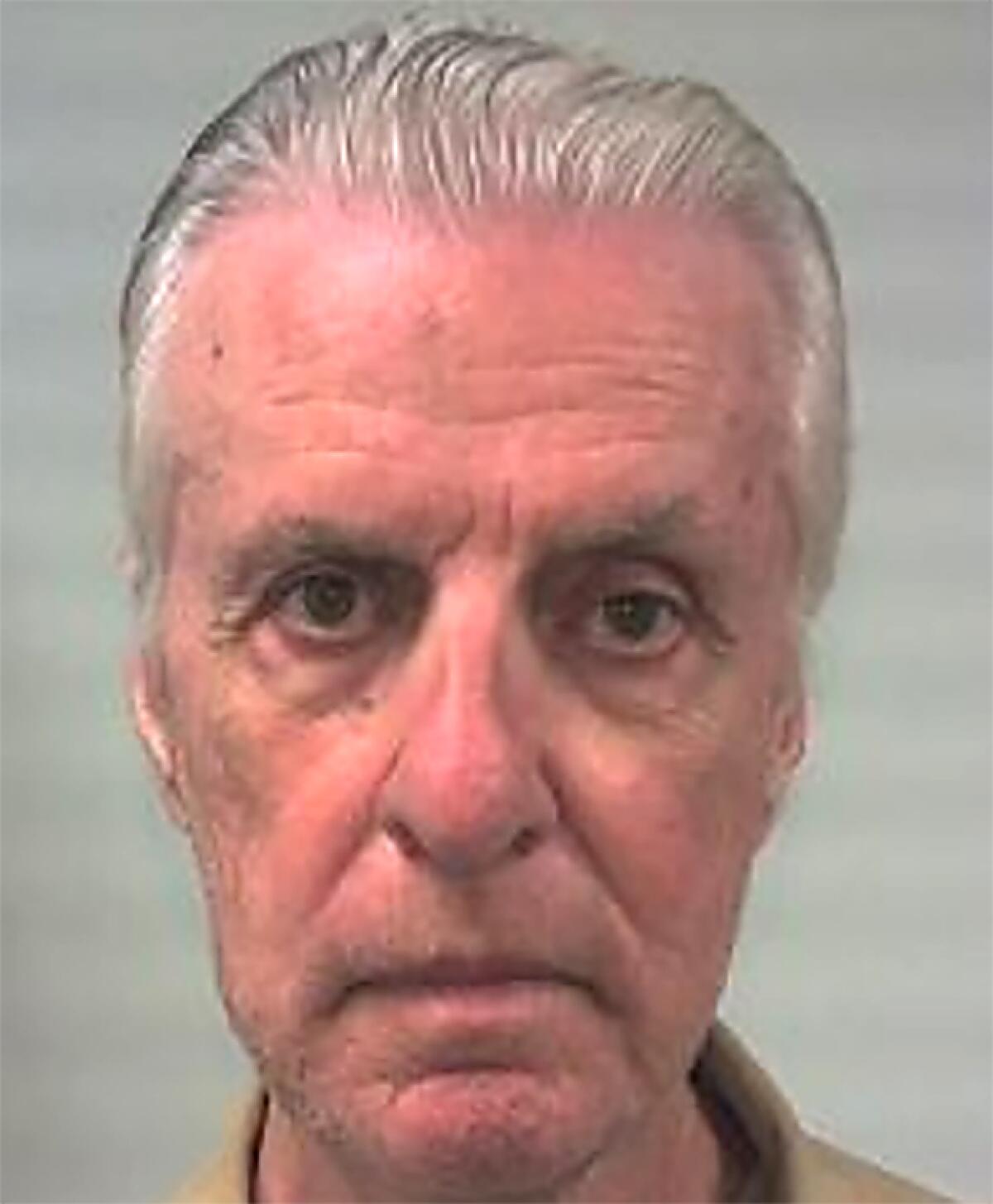Column: The sexually violent predator next door

- Share via
Lawtis Donald Rhoden sexually assaulted a 13-year-old girl in Florida in 1969 and was sentenced to 12 years in prison.
When he got out — but while still on parole — he came to California, where he sexually assaulted three more underage girls, separately, luring them each into his car by posing as a fashion photographer. Then, while he was being investigated for those crimes, he traveled to Nashville and attacked another 13-year-old girl. He was convicted of rape in both California and Tennessee and sent back to prison for two more decades.
I think it’s safe to say that this is not the kind of guy you’d want living next door.
But unfortunately for the people who live on 25th Street East, in the unincorporated portion of Los Angeles County near Lancaster, it may not be up to them. Rhoden may be coming to the neighborhood whether they like it or not.
Even after his prison term ended in 2004, Rhoden was held in a county jail and then a state psychiatric hospital for years because he was officially classified as a “sexually violent predator” who remained dangerous. Then, in 2019, the state concluded that he was no longer likely to reoffend, and a judge ordered him “conditionally released” into the community.
But — surprise! — nobody seems to want him.
You think it’s hard siting a homeless shelter or a halfway house in a residential California community? Try finding a home for a repeat violent sexual offender.
Theoretically, people like Rhoden are supposed to be housed in the county where they resided before they were designated as “predators.” But a judge concluded that due to “extraordinary circumstances,” nothing could be found for him in Orange County. She agreed the search could be expanded, and a potential home was found in Twentynine Palms.
Guess what? The people of San Bernardino County were not interested in having him either. “Stay out!” said the San Bernardino County district attorney’s office. The judge finally rejected that placement in May.
Now a hearing is scheduled for Nov. 5 to discuss Rhoden’s proposed move to a three-bedroom house on 25th Street East in L.A. County, less than nine miles from Lancaster City Hall.
That’s not going over well either. L.A. County Supervisor Kathryn Barger, who represents the Antelope Valley, is opposed, as are city officials. Barger is worried the area is becoming a dumping ground for released sex offenders. Just two months ago, a judge approved a residence in the Antelope Valley for another sex offender, over the objections of many nearby residents.
“Enough is enough,” said Barger.
Even George Gascón, L.A. County’s progressive district attorney, “strongly objects” to Rhoden’s move.
So what’s to be done?
To me this is one of those intractable social problems in which every option seems undesirable. Of course no one wants him. No matter how many psychiatrists say they don’t think he’ll reoffend, there can be no certainty that he won’t. Of course Antelope Valley residents are worried for their children.
But he’s got to live somewhere.
I know I’ll get lots of messages offering an easy solution: Lock him up forever! Execute him! He has forfeited his right to freedom — repeatedly — and the rest of us shouldn’t have to run any risk on his behalf. And I agree, up to a point. If continued mental illness means he’s still a danger, there’s a good argument under the law for keeping him in custody.
But if responsible experts have persuaded a responsible judge that Rhoden can live safely in the community under monitoring and supervision after three decades in prison, then what choice is there? The permanent incarceration of people just in case they’ll reoffend is not an answer.
Rhoden is 72 now, and his last known sexual offense was more than 35 years ago. He’s been held for nearly two decades beyond his official sentence. The authorities have determined he’s unlikely to recidivate. The law says he’s eligible for release.
California’s answer to this dilemma is CONREP, a “conditional release program” for, among others, sexually violent predators coming out of state psychiatric hospitals. It was created by the Legislature in the 1980s after a released sex offender murdered a toddler. CONREP was designed to provide treatment and stringent supervision to keep people from reoffending while they make the transition back into the community. The state contracts with Liberty Healthcare Corp. to provide the services.
CONREP’s oversight certainly seems stringent (some think too much so). Its monitoring tools for sex offenders include unannounced visits, covert surveillance, frequent drug screening, in-person meetings, polygraph tests, phone and computer monitoring, GPS tracking and expenditure reviews, among other things. Monitoring can last years. A spokesperson told me there have been no “physically violent crimes” perpetrated by any of the sexually violent predators monitored by CONREP since its inception.
It claims to visit neighborhoods before recommending placements, including gathering information on the number and ages of children in the area.
I don’t pretend to have a definitive solution to the Rhoden problem. I can’t know if the experts are right that he is unlikely to reoffend or if CONREP’s monitoring plan for Rhoden will strike the proper balance between public safety and the offender’s rights. I do know that if Rhoden were moving in next to me, I wouldn’t be happy. And if I lived in an area getting more than its share of returning sexual offenders, I’d feel aggrieved. The burden needs to be shared.
But I also believe this: The state shouldn’t continue to hold people indefinitely beyond their sentences if they’ve been found unlikely to engage in criminal behavior again. So Rhoden needs a place to live.
More to Read
A cure for the common opinion
Get thought-provoking perspectives with our weekly newsletter.
You may occasionally receive promotional content from the Los Angeles Times.











